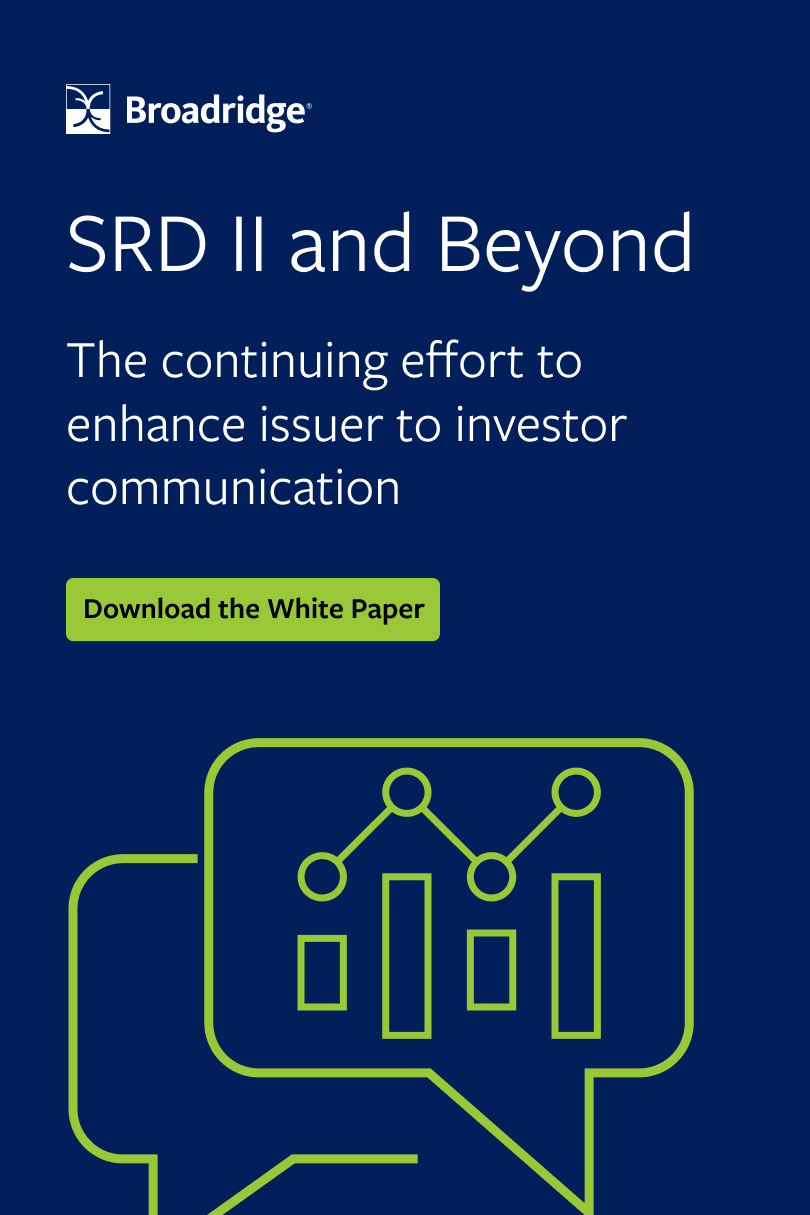If they want to make their world a better place, asset managers have to make a change, attendees heard at the ALFI London Conference
Asset managers were asked to change their ways at the Association of the Luxembourg Funds Industry (ALFI) London Conference at Guildhall. Keynote speaker Sony Kapoor, managing director of Re-Define and an advisor on financial policy and international strategy, suggested that the industry will have to make some significant strategic changes to stay relevant in the modern market.
Kapoor suggested that Organisation for Economic Co-operation and Development (OECD) countries are facing serious issues and
a “demographic decline”. They are facing record levels of public
and private debt, rising political risk and increasing asset prices, he said. Citing the increase in house prices as an example, he pointed out that assets are being inflated to unsustainable prices, while returns are poor.
At the same time, a record number of bonds are generating negative returns, and members of the ‘baby boomer’ generation are starting to retire and so are withdrawing their savings.
In non-OECD countries, however, the emerging economies, the demographics look very different. Here, Kapoor said, political risks have been reduced, the population is primarily young, and the economies are not facing the same challenges that they may have in the past.
He told the audience of asset managers: “Most opportunities for
the future in the funds industry are going to lie outside of the OECD and the faster you move there, the more expertise you develop,
the deeper your efforts there, the more fantastic your returns are going to be.”
A significant part of this opportunity lies in sustainable investment, he said. Although sustainability had a time as a buzzword in the industry, it never became a mainstream issue. “This has to change and it has to change now,” Kapoor said, adding that the industry is starting to see regulation around carbon emissions and environmental issues, and that this is only going to get tighter.
He used India as an example of an emerging economy, suggesting that here the general public missed out on having home landlines and leapfrogged straight into the mobile phone revolution. Similarly, about 25 percent of the population currently have no access to electricity.
Kapoor suggested that, instead of connecting to the national electricity grid, these households are likely to move straight to being self-sustainable, using solar and water-generated power. This brings “amazing investment opportunities”, he said.
He went on to note that: “The tolerance of misdeeds in the financial sector has really fallen.”
Fines leveraged on large global banks have increased, he said, and, partly due to the global financial crisis, the general public has become less trusting and less tolerant, which has led to regulators becoming more responsive to inappropriate financial behaviour.
While there is very little that the industry can do about this, firms should make sure that there is nothing hidden from the regulators or from the public.
Finally, Kapoor suggested that the majority of issues affecting asset management on a global scale are related to one thing: “The failure of financial intermediation.”
As an industry, asset managers have historically failed to properly allocate investment into the areas where the best economic opportunities lie, he said. While the cost of capital is 18 to 22 percent, he pointed out that 95 percent of German bonds are invested in eurozone government bonds returning an average of 1 to 2 percent.
The fund management industry has to grow in its geographic reach and equity allocation, and managers should look for where the best long-term investments lie, while also harnessing technology to their advantage.
Kapoor concluded: “The future of asset management is bright but the future of present actors in the asset management industry is uncertain. If you are able to do the right things … your future will be bright. [Otherwise] you will be toast.”
In another session, panellists discussed changes in the investment space. Massimo Tosato, executive vice chairman of Schroder Investment Management, suggested that pricing of instruments should be reconsidered and that currently the costs of some funds are unacceptable, considering the returns they deliver.
He said: “Today, there is very little connection between value and price.”
Representing the European Commission on the panel, Niall Bohan, head of unit for the capital markets union, said that the commission is trying to build a better banking system and that the asset management industry will be a key part of the new landscape.
He added that the EU encourages the funds industry to invest in a variety of products, adding that firms are generally looking for more flexibility and that “globally, this is the direction we are going in”.
When asked whether more regulation in the market means better regulation, Bohan acknowledged that there has been a huge amount of regulation in the wake of the global financial crisis, however, he suggested that now is the time to take a step back and see how the market practitioners are responding.
He noted four main areas that still require improvement and that the commission will be focusing on. It has “still not cracked” issues of comparable disclosure across different types of investment products, he said, while the effectiveness of passporting is still an issue that needs to be prioritised.
Asset segregation is also an issue that is still a challenge, Bohan said, however he added that it is going to happen, and that it is important to have definition between products. Finally, he addressed reporting requirements, saying they are an issue across various parts of new legislation, and that they are sometimes considered to be excessive and disproportionate.
Claude Kremer, a partner at Arendt & Medernach and the panel moderator, stressed the role that regulation plays in maintaining a level playing field between the banking, insurance, pension fund
and asset management industries, saying that equal ground is required for each industry to “contribute to the financing of the
real economy”.
In a later panel, speakers addressed the calculation and reporting of leverage for liquid alternatives, concluding that currently the process can be problematic for investors.
Thomas Nummer, a fund director at Carne Global Financial Services, suggested that, while it makes sense to offer transparency to investors for leverage, the numbers they are presented with can be unclear, and when only some information is disclosed, it can be misleading.
Disclosing information is a “great idea but very difficult” to get right, Nummer explained.
Another panellist, Michael Derwael, a risk manager of Lombard Odier Funds, agreed that the intention is correct from a systemic
risk perspective. But with different regulations, such as the Alternative Investment Fund Managers Directive and UCITS V, using different definitions of leverage, he agreed “it’s not always easy to make sense of it”.
With regards to rules around liquidity, the panellists expressed similar concerns. Derwael said: “The regulator is getting things right at least in the description of things.”
He added that while market players have to know their market and the equivalent requirements for their investors, there is no real market consensus. “The intention is good,” he said, but “when you get down to the practical details, it can be quite challenging”.
Nummer suggested that having liquidity risk management as part of an independent risk function in an institution can be helpful, and that reporting to the board is reflecting a more holistic view of liquidity generally. He said: “Flexibility is needed.”
Finally, the panel addressed due diligence processes for liquid alternative products, with moderator Henry Kelly of KellyConsult calling due diligence a “sub-industry” in itself.
Manfred Schraepler, managing director and business unit head for financial assets and liquid private markets at Aquila Capital, said: “Due diligence should actually come before anything else.”
He specified that this should be taken in to consideration before targeting investors or getting independent managers on board, and pointed out that it is crucial to understand the product being sold and the target market first.
Brian McMahon, managing director of BNY Mellon in Luxembourg built on this, suggesting that, with the amount of cash flowing into liquid alternatives, “we need to be a little bit mindful of it”.
McMahon suggested that due diligence should also extend to clients, making sure that they have “the appropriate processes, skills and procedures” in place to be able to manage the product they are being sold.



